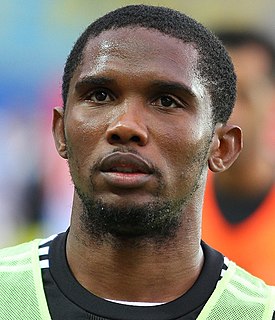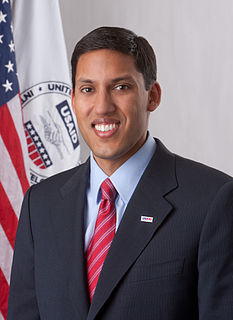A Quote by Leila Lopes
I want to show the world that there is more to Africa than poverty, hunger, and disease.
Related Quotes
The greatest disease in the West today is not TB or leprosy; it is being unwanted, unloved, and uncared for. We can cure physical diseases with medicine, but the only cure for loneliness, despair, and hopelessness is love. There are many in the world who are dying for a piece of bread but there are many more dying for a little love. The poverty in the West is a different kind of poverty -- it is not only a poverty of loneliness but also of spirituality. There's a hunger for love, as there is a hunger for God.
We have the opportunity now to look at the two billion people in the world who suffer from the most abject poverty, hunger, disease, and devastation. Add to that another two billion people who are just plain poor. If you look into the world of those caught in economic oppression, illiteracy, disease, and sexism, then you'll understand more clearly what we have to do.
As we mourn President Mandela’s passing we must ask ourselves the fundamental question - what shall we do to respond to the tasks of building a democratic, non-racial, non-sexist and prosperous South Africa, a people-centred society free of hunger, poverty, disease and inequality, as well as Africa’s renaissance, to whose attainment President Nelson Mandela dedicated his whole life?
We all have families who are longing for peace in the world and an end to the suffering caused by poverty, disease, and hunger. Untold numbers of our friends, our neighbors, our parents, and our children, are hoping that there is more understanding, more generosity, more genuine friendship, and more caring among people of all faiths and cultures.
Hunger, disease and poverty can lead to global instability and leave a vacuum for extremism to fill. So instead of just managing poverty, we must offer nations and people a pathway out of poverty. And as president I've made development a pillar of our foreign policy, alongside diplomacy and defense.
What's most striking is that the world as a whole has made remarkable progress against hunger, poverty and disease. I believe in God, and I see that hundreds of millions of people have escaped from poverty in places like Ethiopia, Bangladesh, Brazil and Britain. That's why, for me, it makes sense that this is God moving in our history.
This Congress did more to uplift education, more to attack disease in this country and around the world, and more to conquer poverty than any other session in all American history, and what more worthy achievements could any person want to have? For it was the Congress that was more true than any other Congress to Thomas Jefferson's belief that: 'The care of human life and happiness is the first and only legitimate objective of good Government.'
Women represent 70 percent of the 1.3 billion people in our world who live in absolute poverty. Consequently, as Joan Holmes, president of the Hunger Project, points out, any realistic efforts to change patterns of chronic hunger and poverty require changing traditions of discrimination against women.
If we continue on the trend we’re on, we can reduce extreme poverty by more than 60 percent-lifting more than 700 million people out of dollar-and-a-quarter a day poverty and back from the brink of hunger and malnutrition. But if we accelerate our progress from 3 percent annual reduction to over 6 percent and focus on key turnarounds in some difficult countries, we could get a 90 percent reduction. We could essentially eliminate dollar-and-a-quarter head count poverty.



































